The butchers, one of the 5 local establishments that increase their turnover during the covid
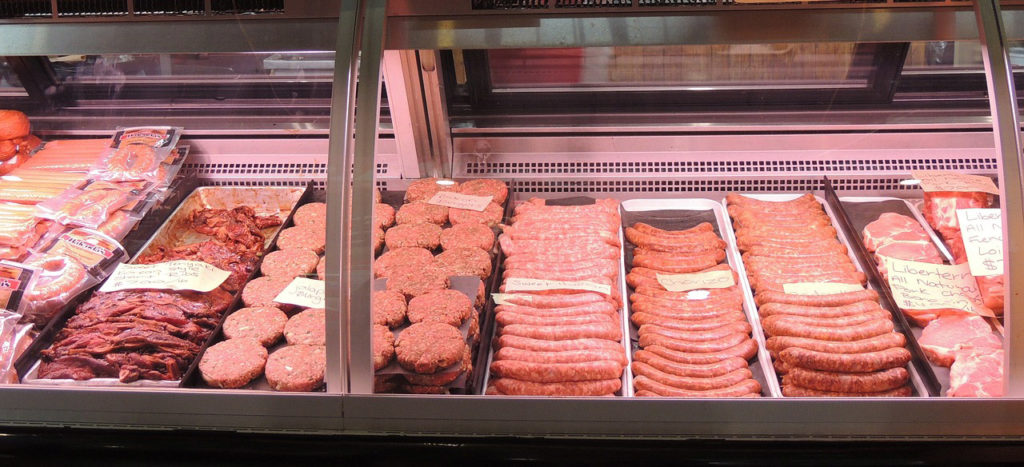
79% of Spaniards are consciously investing in the businesses in their neighborhood to help revive the economy of small businesses. This data comes from the latest study carried out by Mastercard, which includes butchers among the five local businesses that are expected to experience a greater economic rebound after COVID.
The Parliament of Catalonia approves a resolution in favor of the meat sector
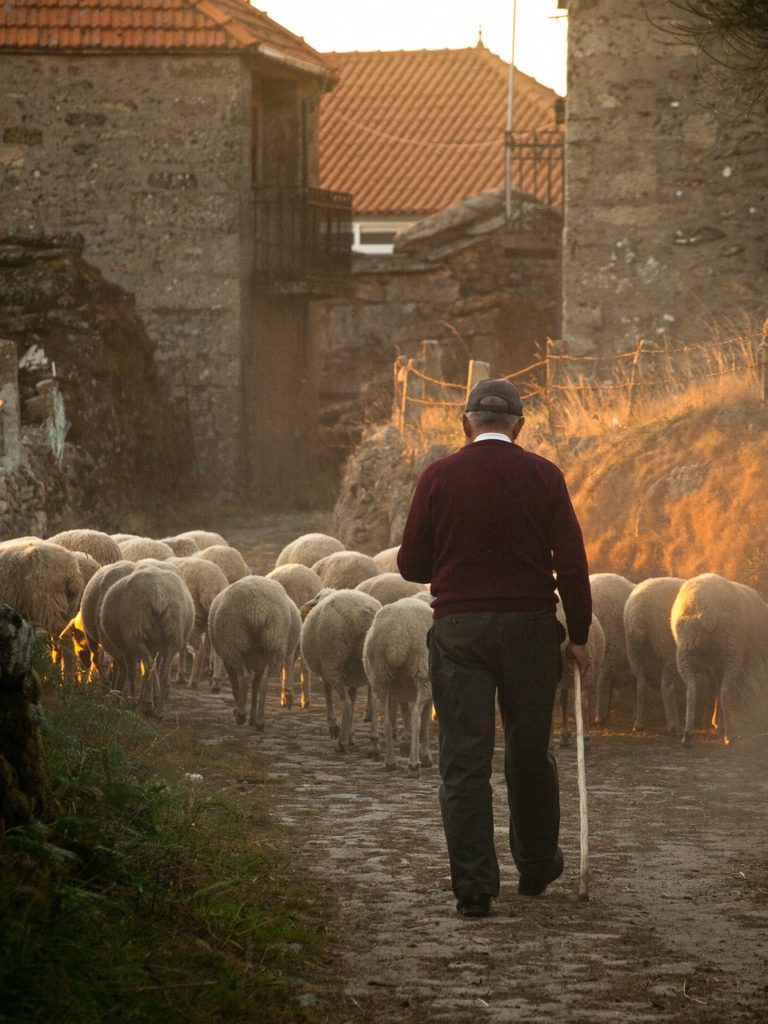
The Committee on Agriculture, Livestock, Fisheries and Food of the Parliament of Catalonia, in the session of June 30, 2020, has approved a resolution presented by the Parliamentary Group Socialistes i Units per Avançar, and the amendments presented by the Grup Parlamentari Republicà and the Parliamentary Group of Junts per Catalunya, a resolution in favor of the meat sector.
Consumo announces the implementation of Nutriscore in the first four months of 2021
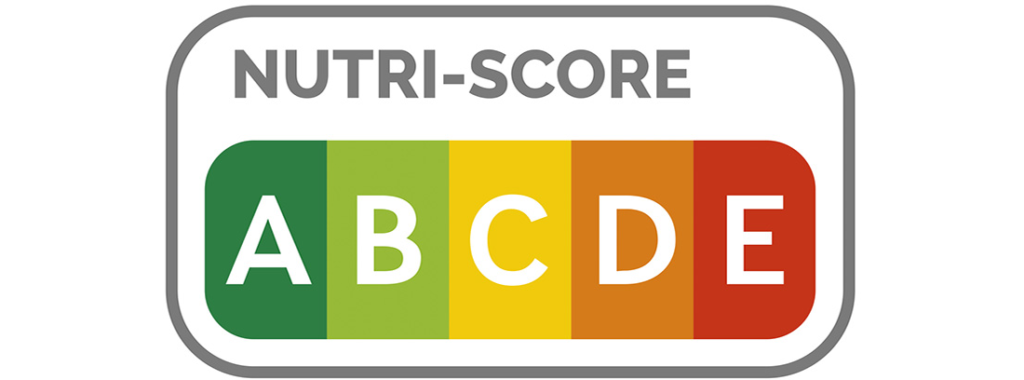
The Ministry of Consumption on which the Spanish Agency for Food Safety and Nutrition (AESAN) depends organically has announced that the Nutriscore nutritional front labeling system will enter into force in the first four months of 2021. Spain thus joins France, which has already implemented this system, and Belgium and Germany, which have announced to the European Commission their desire to implement it. This frontal labeling system is voluntary for companies that decide to establish it, in the absence of European regulations deciding on its mandatory nature.
Catalonia pays the 5.7 million euros in aid for organic farming in 2019
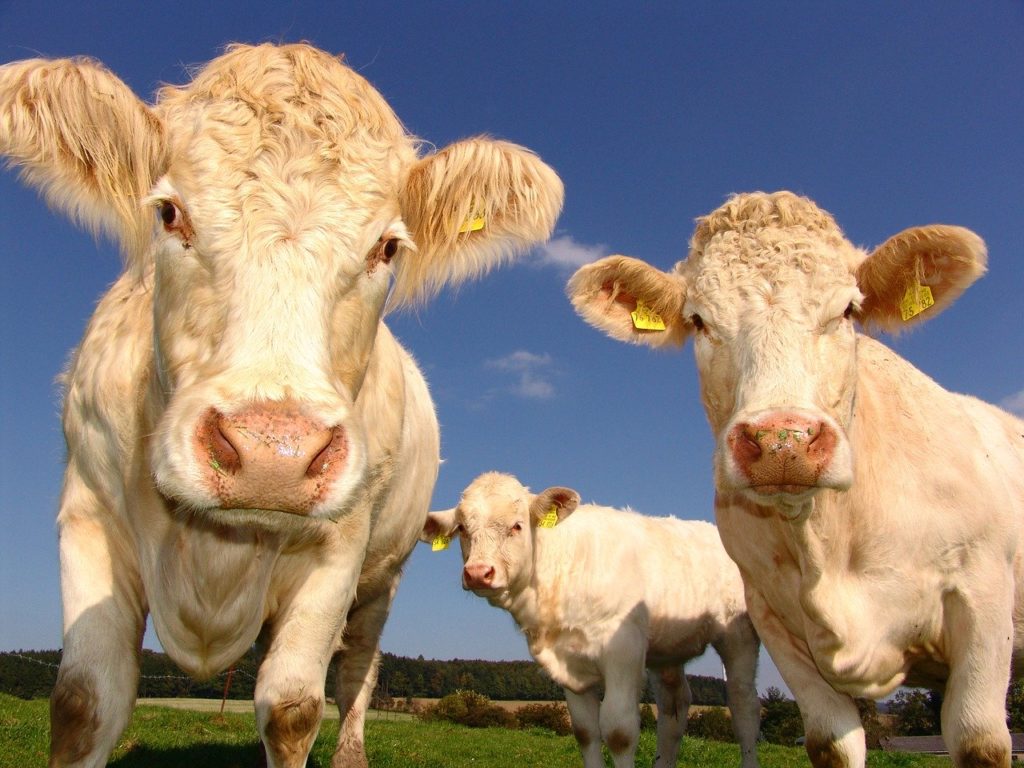
The Government of Catalonia has made the payment of the amounts corresponding to the Ecological Livestock aid for the 2019 campaign. The total amount of the payment is € 5,739,705.49, it is paid to 580 beneficiaries from 29 regions.
June 23, lamb day. Ten tips for a perfect lamb barbecue and a few tricks

On June 23 the sector celebrates the day of the lamb. What traditionally was a day to gather and celebrate San Juan, today will again be a day of celebration and reunion in a country that, after three months of seclusion, needs to gather to celebrate. And nothing better than to do it around a barbecue with lamb meat at home with family and friends.
The beef sector in Spain launches the ‘Carbon Neutral 2050’ strategy to contribute to preserving the environment
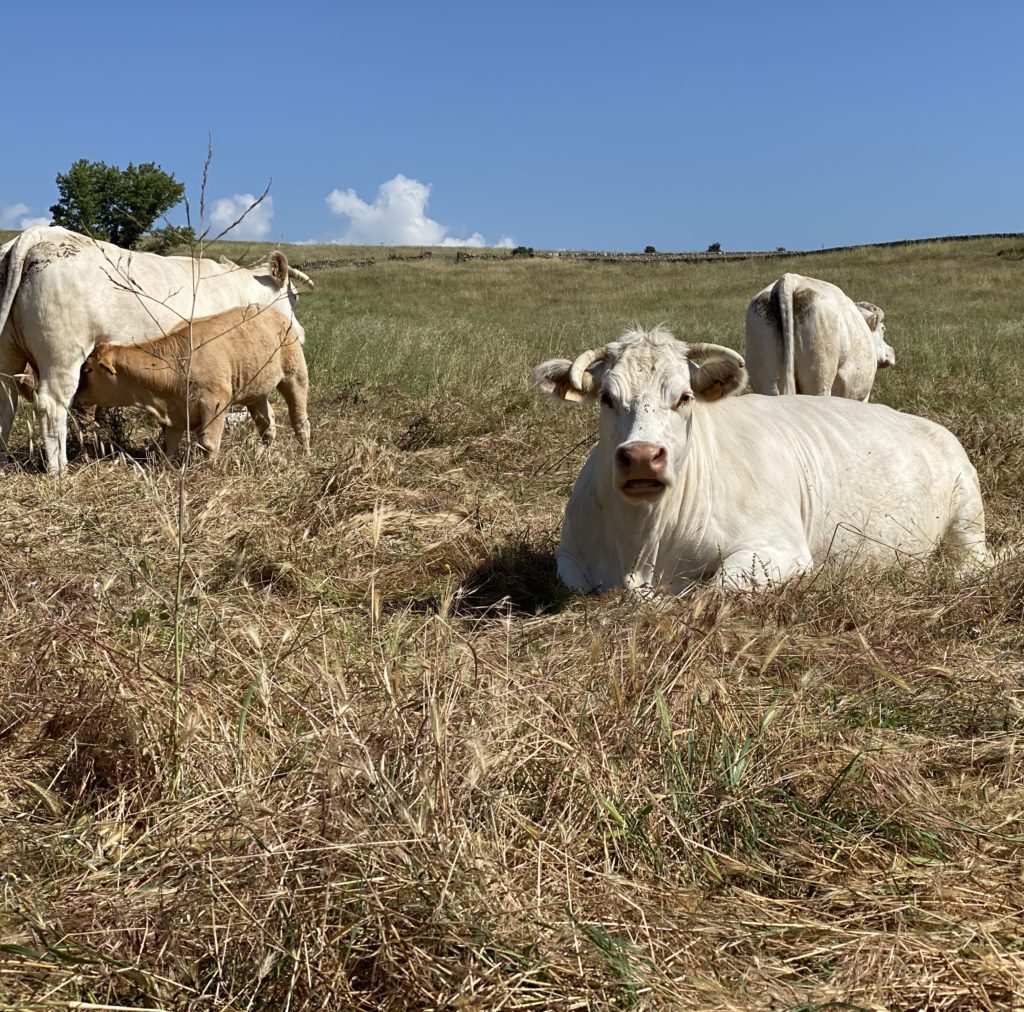
PROVACUNO, the Interprofessional Organization of Beef, has launched the 2050 Carbon Neutral Beef Strategy on the occasion of World Environment […]
The fairs are back in the food sector. Registration opens for Meat Attraction
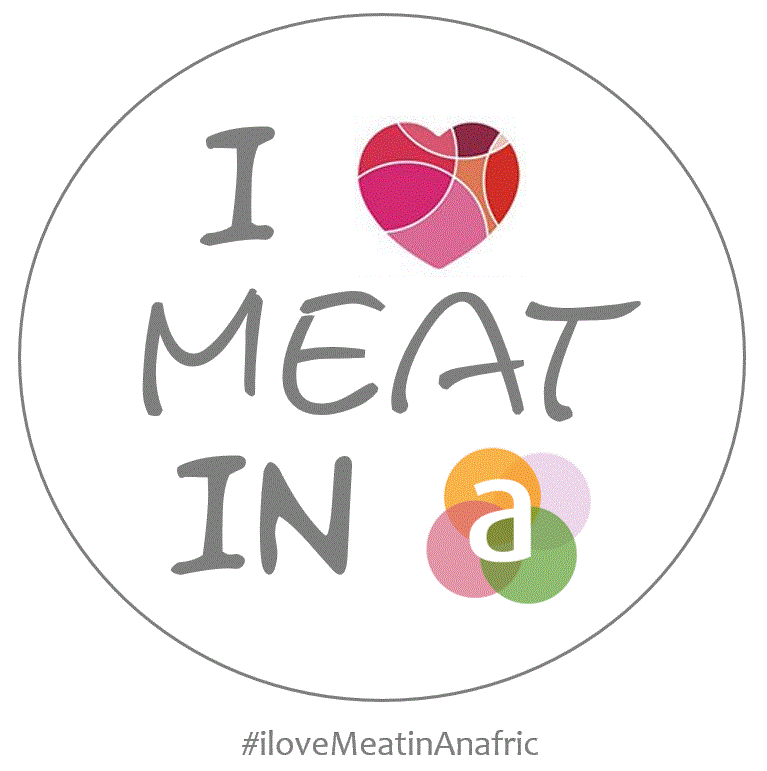
Meat Attraction 2021 has opened its registration period to participate in the next edition to be held from February 2 to 4. Organized by IFEMA and ANICE, the “Appointment with the best meats in the world” will pay a great tribute to all professionals in the meat industry on this occasion (#Proud of Our Sector). Anafric has participated in the different editions of the fair with a grouped stand. In this fourth edition, it will also. For more information about participation in Meat Attraction together with Anafric, anafric@anafric.es
Cesfac starts the #IndisPIENSables campaign to highlight the livestock feed sector and its professionals
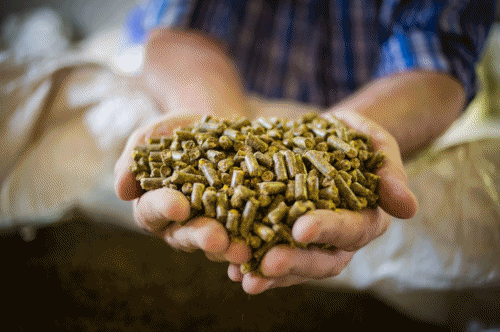
Cesfac has started a campaign that bears the title #IndisPIENSables and aims to highlight the food sector for our livestock, as well as the people who work every day so that the livestock sector as a whole has the best raw materials to feed cattle.
Anafric signs a collaboration agreement with the Generalitat de Catalunya for the purchase of fresh products from small producers with difficulties by Covid-19
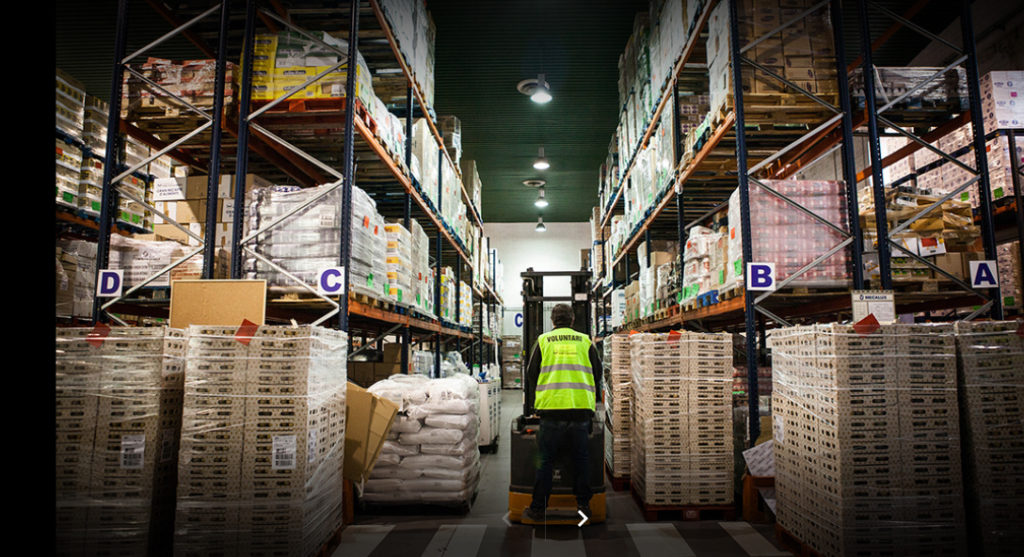
Anafric ; the Generalitat with the Department of Agriculture, Livestock, Fisheries and Food; the Food Bank entity and small producers are the 4 legs of this large chain whose ultimate goal is for the perishable product to be distributed to the families who need it most through the Food Bank Foundation.
Anafric claims the Government the immediate return of the advanced VAT by the meat exporting companies due to the lack of liquidity due to the inactivity of the HORECA sector
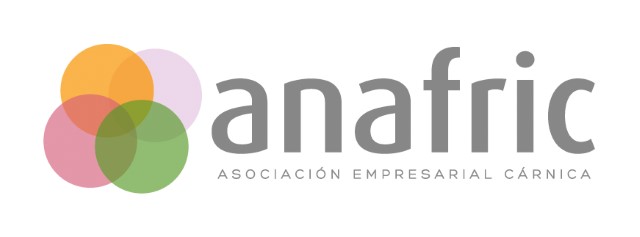
The meat sector as a whole is experiencing moments of extreme difficulty due to the COVID crisis 19. With the exception of a few large companies, most of the meat industry in Spain is made up of small and medium-sized companies that have completely lost their sales in the channel HORECA and proximity sales. They do not have money, but they have to face social security payments, taxes, rents and payments to suppliers, especially to farmers. There is a crisis in the sector that will be very difficult to overcome.
Desarrollo Rural de Navarra launches a special aid line of 3 euros per sheep for the sheep and goat sector
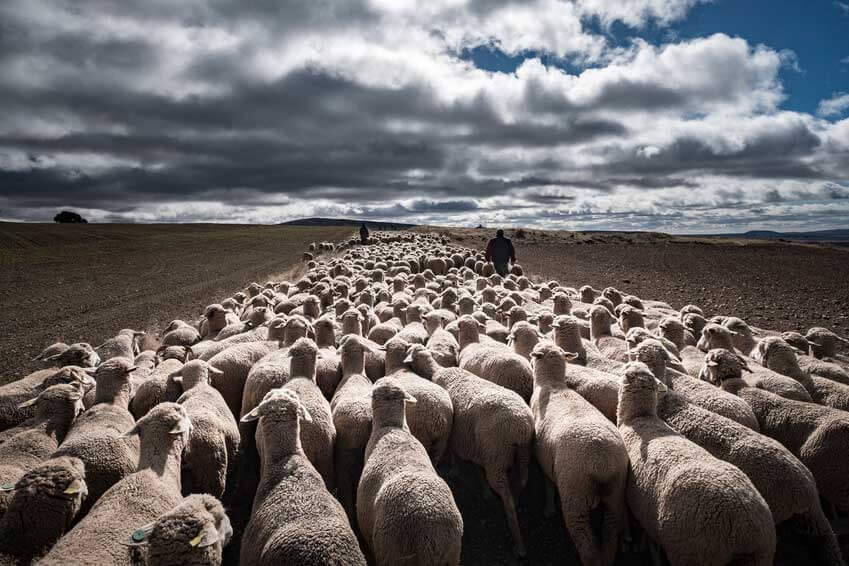
The objective of this support measure is to contribute to the maintenance of the sheep and goat sector, which is among the most affected by the health crisis
UECBV: An animal health scientist’s point of view on the alleged connection between food production and COVID-19
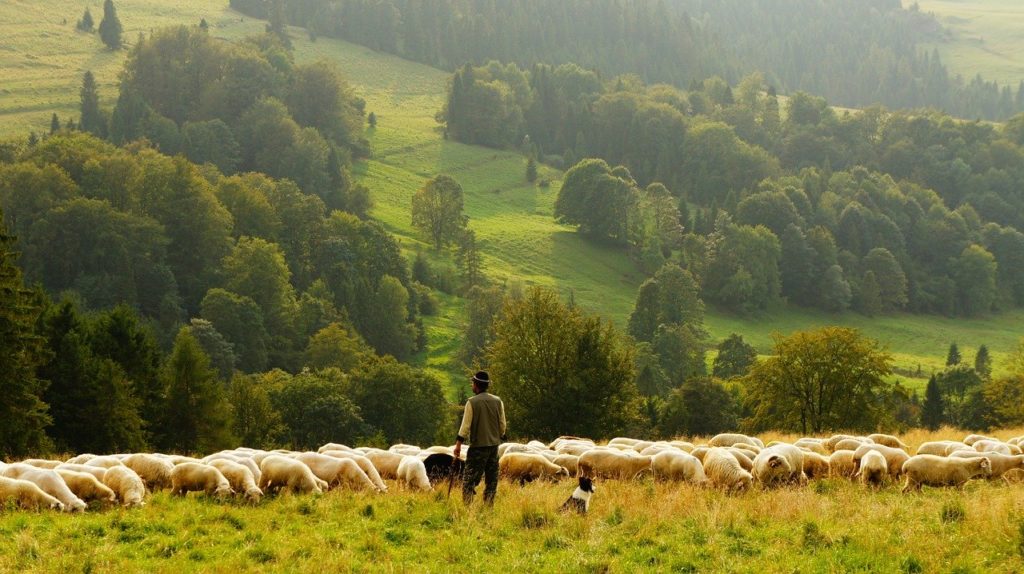
What we need is continued investment in infectious disease research and support for scientists to decipher molecular immune and resistance mechanisms, as well as development of new generation vaccines and ultra-efficient detection methods.
Consumers, veterinarians and administrations recognize the work carried out by the livestock-meat sector during the pandemic
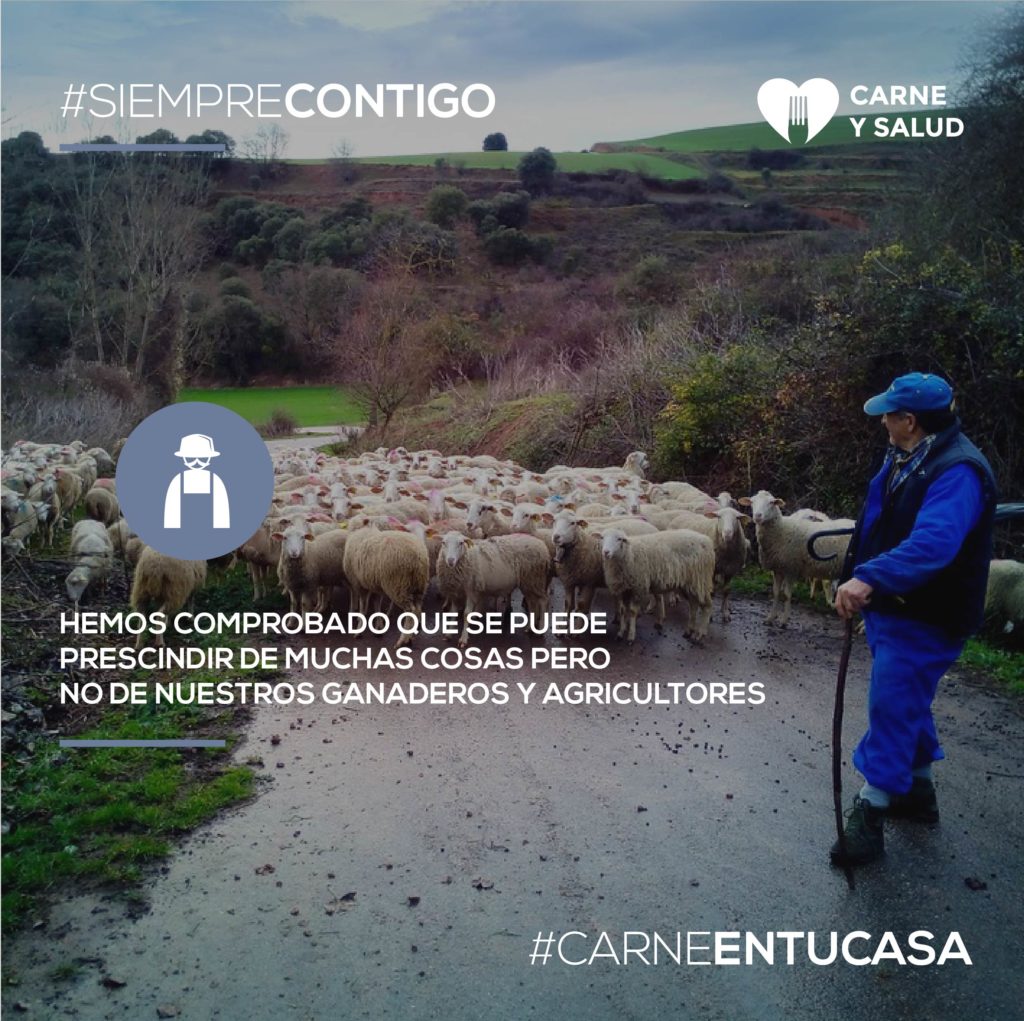
Livestock directly employs more than half a million people in Spain, meat industries 97,000 workers and retail trade another 75,000, estimating that about two million people live in the livestock-meat chain in Spain.
Carne y Salud. Meat and processed meat, protagonists during confinement
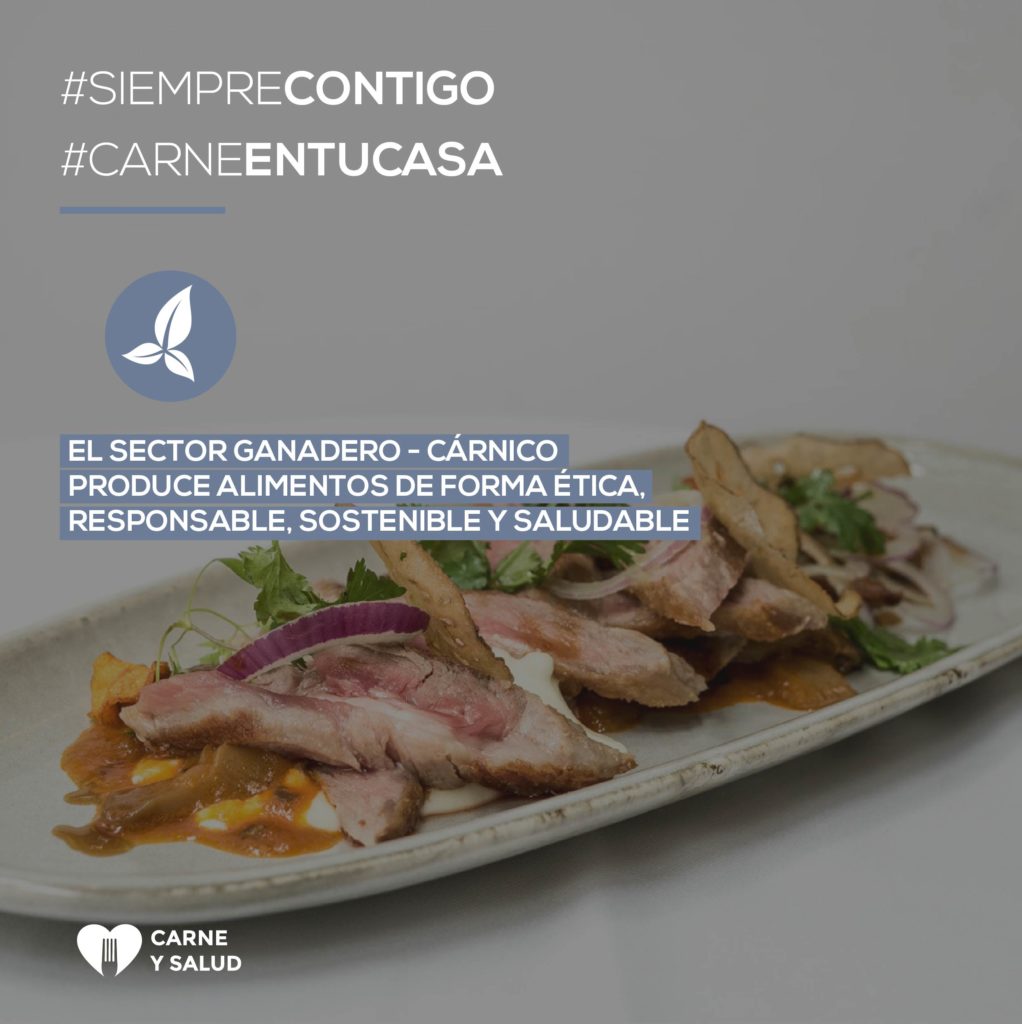
In the seven weeks that have passed since March 9, 4.5 million tons of food and beverages have been made […]
Interovic Campaign: Compartiendo Soledad (Sharing Solitude)
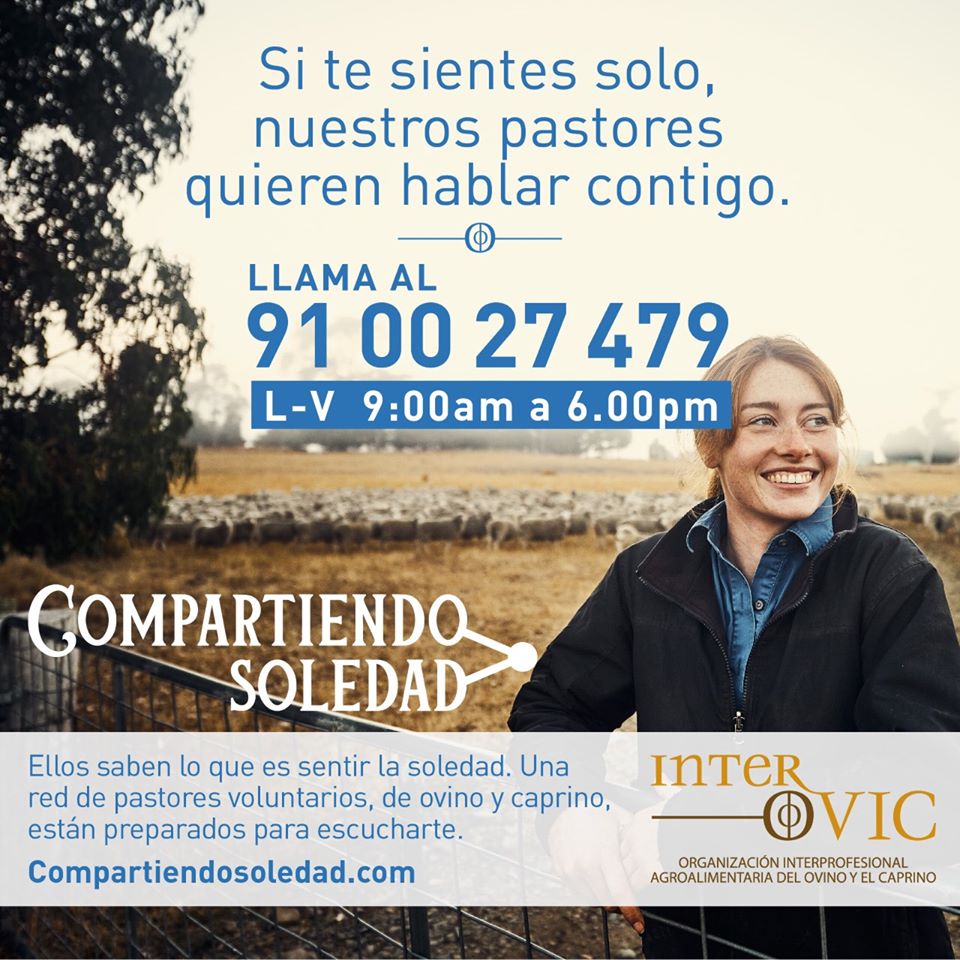
Interovic has started a campaign that we think is worthwhile. The campaign has as its motto “Compartiendo Soledad”. It is that if in the cities many people, in their confinement, feel alone, the group of shepherds can get in touch and speak….
Carne y Salud: Sustainability and a European production model for the Spanish meat sector
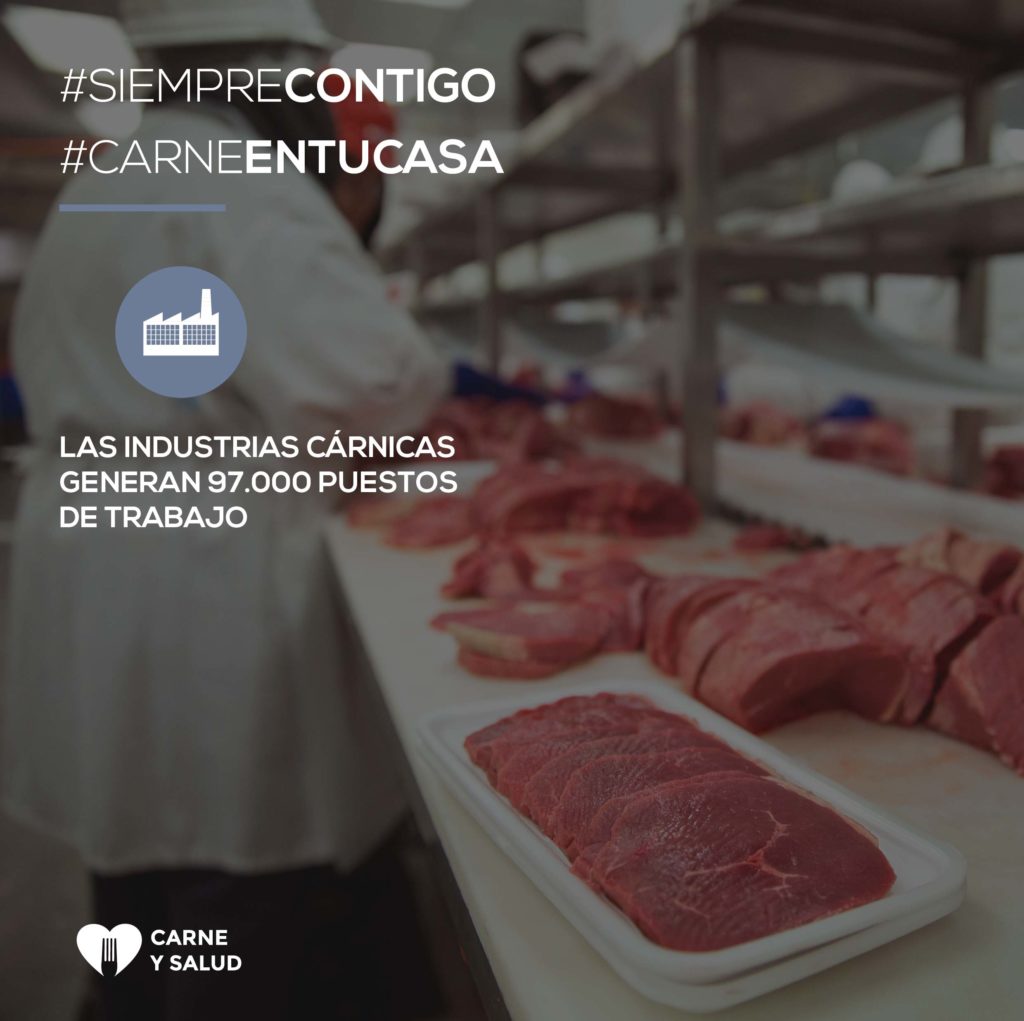
Livestock farms in our country have experienced in recent years a profound evolution that has given rise to a new […]
Where does the polluting CO2 come from?
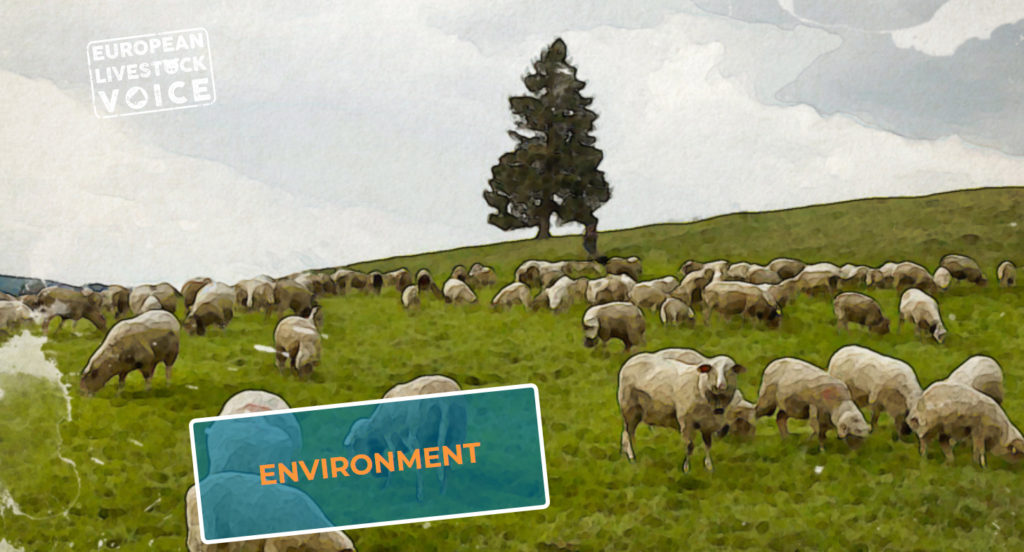
At Anafric we echo a news story published in the Diario de León. Contrary to the theory that made the field responsible for excess C02 emissions, caused by climate change, the new data support that livestock management is not to blame for this burden. Recent records show that ranching is not the primary cause of climate change. Data from the Ministry for the Ecological Transition and the Demographic Challenge indicate that livestock meat productions represent only 7% of the total GHG emissions in our country. The livestock production, meat processing and marketing sectors have continued to carry out their activities since the declaration of the COVID-19 pandemic to keep the population adequately supplied with safe and quality food.
The livestock and meat sectors contribute 42,000 million euros and 700,000 jobs to the economy
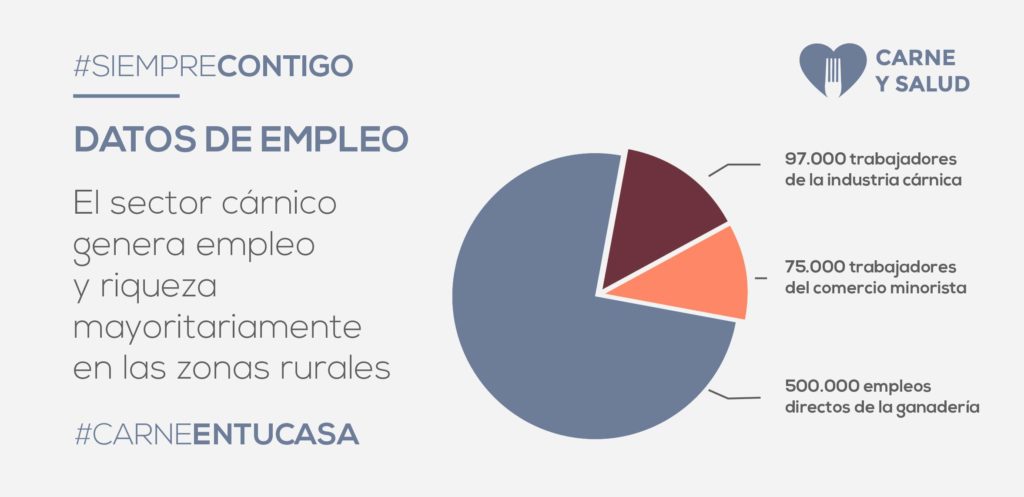
The meat industry sector is made up of a fabric of some 2,800 companies with slaughter, cutting and production of processed products, with a very important base of small and medium family-owned companies, while large business groups have also consolidated, some of them leaders at European level. Last year the meat industry raised its turnover by 2.5% to 26,882 million euros, which consolidates it as the most important sector within the food and beverage industry, which represents 22.6% of all the Spanish food sector. Spanish meat production, an international benchmark.
Livestock, an essential service. The UECBV appreciates the professionalism of the Food Heroes
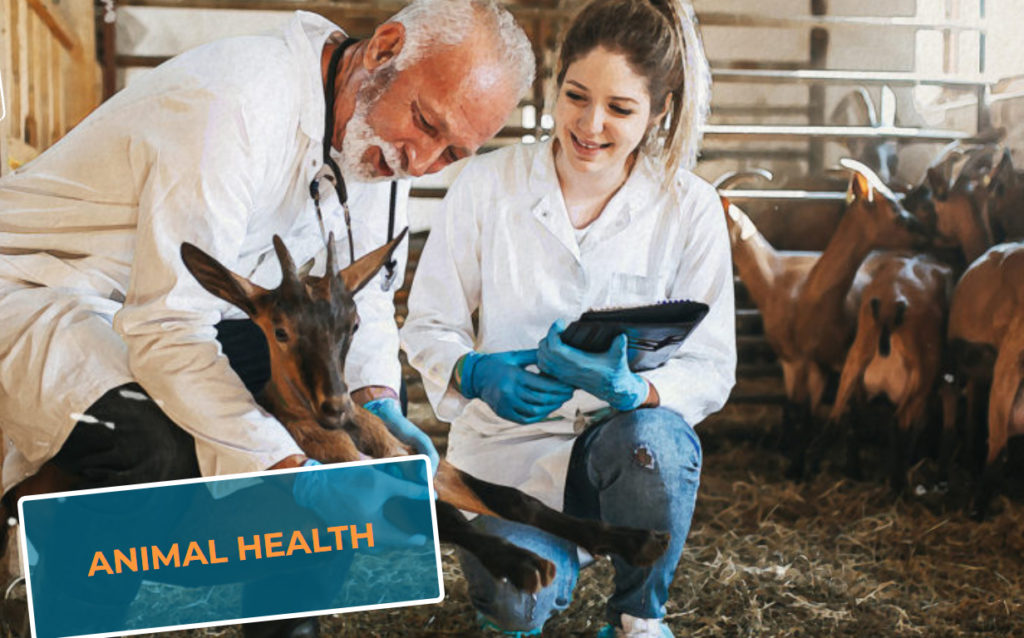
Long queues at supermarkets and food shops. Half-empty shelves. Only a few products in refrigerators. When re-stocked, the items in much demand at our supermarkets are regularly seen to be the now infamous toilet paper, followed by essential foods such as meat, milk, eggs, bread, canned goods and pasta.Such scenes have been witnessed in several shops across Europe, and indeed the world. And many EU citizens born after the mid-1950s are not used to such experiences. But luckily – thanks to the many Food Heroes working against the clock throughout the entire food supply chain – food security should be the least of our worries in Europe in the face of this COVID-19 pandemic.
They denounce the situation of the Cordovan feedlots due to the lack of demand from the slaughterhouses
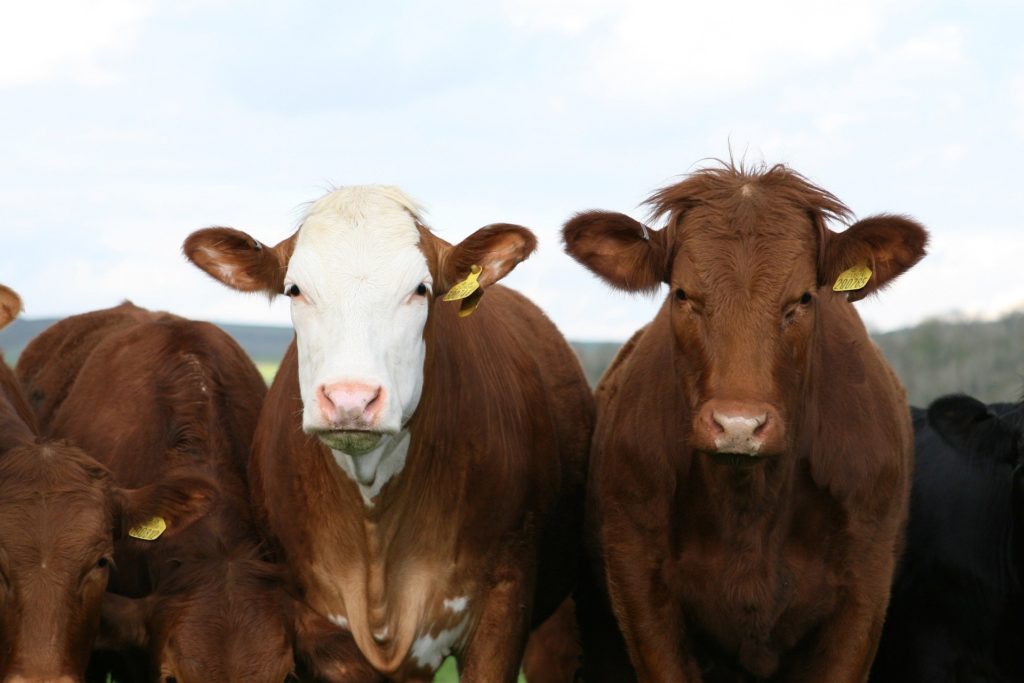
The agrarian organization Asaja Córdoba has issued a statement with which it wants to point out the “dramatic” situations that are occurring in the feeding centers of the province of Córdoba, especially in the livestock farms in the regions of Los Pedroches, Guadiato and Sierra de Córdoba before the impossibility of leaving animals to slaughterhouses, due to the closure of certain markets that absorbed these livestock productions, mainly from the Horeca channel (hotels, restaurants and catering), and for export. According to the agrarian organization, this type of livestock is the base for many ranchers in the north of the province.
